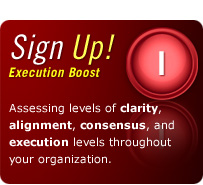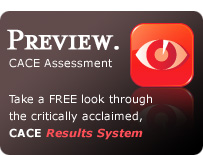Interpersonal Expertise Tip: Engage in Honest, Respectful, Empathic (HRE) Communication
February 6th, 2010
Many of us have experienced the problems that miscommunication often brings about in our lives. It has been our experience that much of this dissatisfaction and conflict is caused by being (or at least feeling) misunderstood by well-meaning others. We can often avoid this unnecessary pain by expressing our views in honest, respectful, and empathic ways and encouraging others to do the same with us. Establishing such communication styles can open the door to more direct discussions; the kind of communication that is free of dishonest manipulation or attacks and filled with genuineness and respect for all parties (including ourselves).
Increased engagement in honest, respectful, and empathic communication respects the boundaries, uniqueness, and limitations of ourselves and others. More honesty tends to increase our trust in ourselves and in others, more respect can increase openness, and more empathy can set a tone of comfort and understanding. Here are some ways people have been able to cultivate more “HRE” Communication in their lives:
- Become clear about what honest, respectful, empathic (HRE) communication is (and what it is not). There are many misconceptions about what it means to communicate in an HRE way. For example, true honesty does not mean “saying the first thing that comes to mind.” To be truly honest means that we spend the time to become deeply aware of how we experience the situations we are in and practice expressing these perceptions precisely. “You are such a jerk,” is much less precise (and thus less honest) than a statement like this: “When you said that my work wasn’t up to par, I felt as though the strengths of my work were not attended to, which felt very upsetting to me.” There are also many misconceptions about what respectful and empathic communication is. For instance, many believe that being empathic (i.e., the act of engaging with another person in order to deeply understand things from that person’s perspective) means that we have to give up expressing our own genuine thoughts and feelings. Nothing can be further from the truth; we can attempt to understand others and respectfully share own own perspectives in the same conversation. The first step in communicating in HRE ways is often a solid understanding about how to do so.
- Understand why HRE Communication makes sense logically. Sometimes, HRE Communication can be dismissed as something that is “emotionally nice,” but not logical or practical in the so-called “real world.” Understanding the logic behind such communication can be critical to feeling comfortable committing to honest, respectful, empathic communication. One major barrier to such communication is the (typically invalid) belief that we have “the one best way” to do or understand things. A major reason that this belief is typically inaccurate is the fact that we all tend to suffer from “psychological contaminants” (i.e., biases and blind spots). For a variety of reasons, there is information that we either miss or ignore that others may not. Recognizing this fact can increase our desire to communicate our perspectives honestly while also respecting others’ views and empathically attempting to understand them so we may become less biased and/or blind to certain facts.
- If deemed helpful, utilize the “IOC” Method of structuring HRE communication. Another common barrier to HRE communication is the lack of a structure to help us to communicate in this new way. One way to structure a more honest, respectful, and empathic communication process is by using what we call the “OIC” method (Observing, Imagining, Checking Out). Honesty is covered by clearly communicating what we observe and what that observation causes us to imagine about what it happening (for example, “I observe that you have your head down on the table. I imagine that you are tired.”). Respect for the other(s) involved in the communication comes from “checking out” our observation/imagination (for example, “Is that right or am I misperceiving things?”). Empathy comes from listening to others’ responses (for example, “No, I’m not tired at all, actually – just feeling a bit overwhelmed right now.”). The OIC Method can help us engage more frequently in HRE communication.
NOTE TO THOSE USING THE MISSION FULFILLMENT SYSTEM: You can move toward enhanced Interpersonal Expertise by adding a new Objective to your system by using the “Add New Item” link (for example, “Engage in more honest, respectful and empathic communications with others”). You can then develop a SMART Goal related to that new Objective by using the “Add Subitem” link to the far right of the new Objective (for example, “Practice the OIC Method with at least 1 person a day every week.”).
FOR THOSE WHO ARE NOT ON THE MISSION FULFILLMENT SYSTEM: Click here to for more information and click here to sign up.
FINAL NOTE: If you were linked to this article by a video or email, please return to that link and proceed with any other instructions that you deem helpful. For more Execution Excellence and Interpersonal Expertise tips and tools visit our site at: www.excellenceuniversity.net
Article Filed under: 2. Interpersonal Expertise Tips



2 Comments Add your own
1. Deborah | November 16th, 2016 at 2:21 pm
This article is an important reminder, especially in the age of technology, in which people usually communicate via text, email, or chat and phrases are more likely to be misinterpreted for being sarcastic or in-genuine than if we were talking to someone face-to-face. A good rule-of-thumb that may be helpful in reminding yourself to engage in HRE communication is to treat others as you would like to be treated. Most of us want to be answered with honesty, treated with respect, and understood as if someone was stepping into our shoes. Therefore, when someone confides in you and opens up to you, you should reciprocate by being honest, respectful, and empathetic.
2. briana de Cola | February 9th, 2018 at 12:17 am
Empathetic communication is imperative, without it judgement seems to swiftly follow. Even if we have not been in another’s shoes, empathizing with them is as genuine as it gets. When we make an effort to understand the shoes people walk in, the closer we are to feeling that pebble in their shoe. In my opinion it is easier to empathize with someone who owns the same pair of shoes I own. As Carl Rogers so beautifully voices, “It is not an easy thing to permit oneself to understand an individual, to enter thoroughly and completely and empathetically into his frame of reference” (pg. 243). Dr. Higley parallels this idea, communication is a humbling experience without the use of “psychological contaminants” but, if we utilize the ‘IOC’ method the results from genuine HRE communication with another person makes up for any uncomfortable feelings that might arise. Humility is a rough pill to swallow, sometimes it is easier to acquiesce to bias because it is more comfortable, familiar ground, “to accept another person and his feelings is by no means an easy thing” (pg. 247).
Schustack, M. and Friedman, H. (2008). Readings in personality. 2nd ed. Boston, Mass.: Pearson/Allyn and Bacon, pp.271-274.
Trackback this post | Subscribe to comments RSS Feed
Leave a Comment
Some HTML allowed:
<a href="" title=""> <abbr title=""> <acronym title=""> <b> <blockquote cite=""> <cite> <code> <del datetime=""> <em> <i> <q cite=""> <s> <strike> <strong>